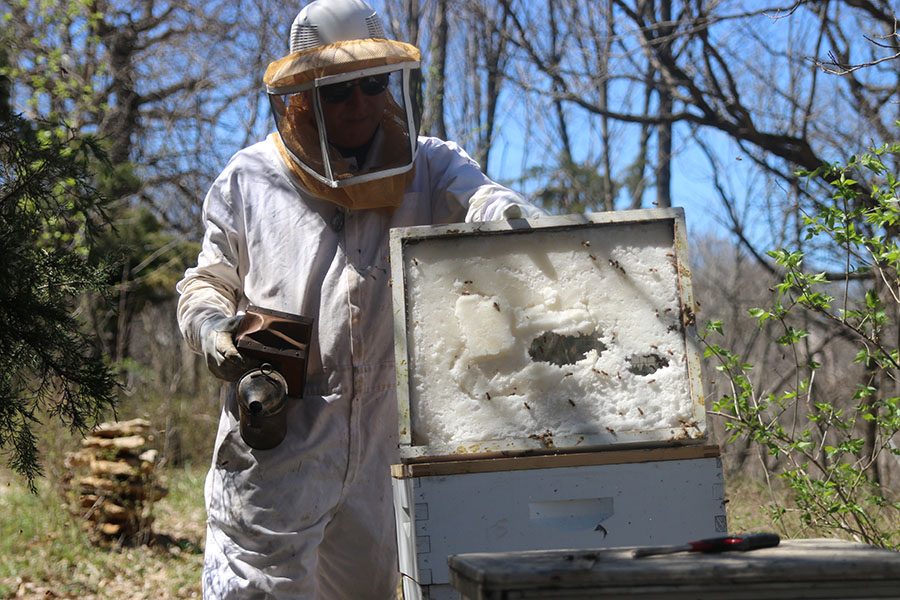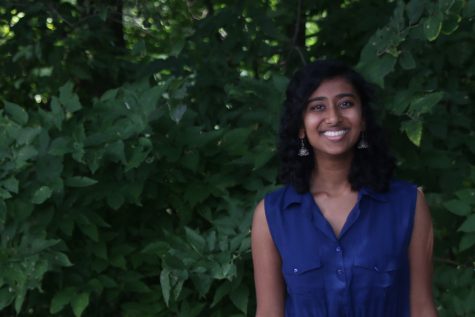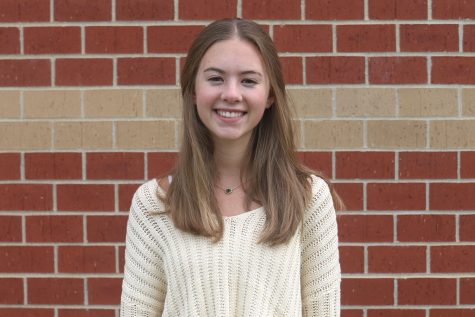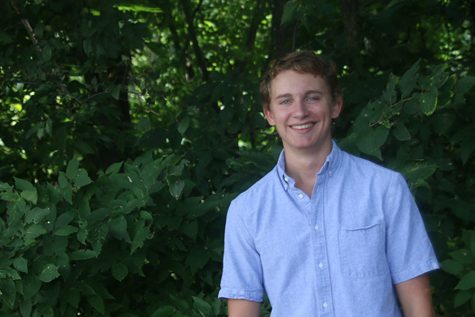Bees play a significant role in our agriculture and environment
From growing a garden to being safe with pesticides, there are ways to support bees
By Jakob Twigg
Holding up a bee smoker in his left hand, beekeeper Jeffery Hoover removes the top portion of the hive to begin his work on Monday April 8.
April 29, 2019
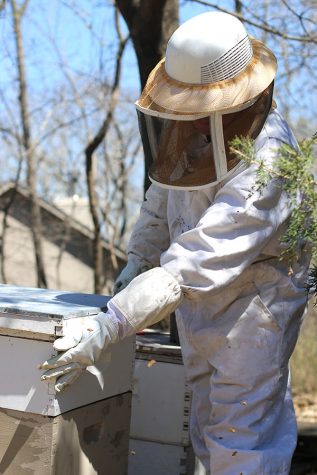
Beekeeper Jeffery Hoover reattaches the top feeder to the hive, which currently holds a 20-pound sugar cake. The bees will continue to feed from the sugar cake in addition to the local flora.
On your fourth grade field trip, you are strolling through the park when a fellow student shrieks. Immediately, everyone turns into statues as the sound of buzzing gets louder and louder. While not usually on our mind until they get too close, bees play an active role in the world around us. From honey to the pollination of crops nationwide, these insects are a necessity to our luxuries and agriculture.
After taking a Beekeeping summer class at Johnson County Community College, junior Joan Downey renewed her passion for bees and believes they need to be protected.
“[Bees are] pollinators not just of wild plants, but also play a huge role in crop pollination,” Downey said. “If we didn’t have bees, we would not only lose a lot of biodiversity, we would also lose a lot economically and with resources.”
Beekeeper Jeffrey Hoover identifies lack of caution on the part of homeowners and farmers as a significant danger to bees.
“The problem with pesticides is that if you are a homeowner and you have pesticides, you don’t have to follow the label,” Hoover said. “We need to be better stewards of watching the pesticides and genetically modified foods that are used to treat our [gardens and] crops.”
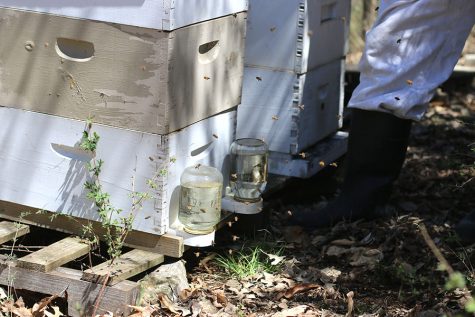
Honeybees dance around two feeders filled with sugar water, a sweet substance consisting of one part water and two parts sugar.
Years of beekeeping and running KC Raw Honey has led Hoover to educate himself on the role bees can play in the biosphere as a whole, in addition to being pollinators.
“The Environmental Protection Agency has thought that honeybees are a good way of measuring the toxins in the local areas because they can go out and gather pollen and bring it back to the hives,” Hoover said. “[The EPA] can evaluate how much toxin they bring back into the hive and use that to determine what the levels of toxin are in the area.”
While Downey doesn’t keep bees, she does support them however she can.
“The easiest way is to start your own little backyard garden, or, if you have a garden, add plants that are bee-friendly,” Downey said. “I have a small bee garden in my backyard and we’re doing a station [at Girl Scout camp] that’s involved in both agriculture and hydroponics, and a large section of that is going to be about bees.”
Additionally, Downey believes that supporting “local hive owners is a really good way to help out, because having hives doesn’t hurt bees, it actually helps bees.”
Downey firmly believes in the importance of being environmentally conscious, regardless of age.
“It’s important for young people to be interested in everything, because eventually it’s going to be our responsibility. To be honest, it kind of already is,” Downey said. “It’s our responsibility to take care of the world around us and make it a better place.”



